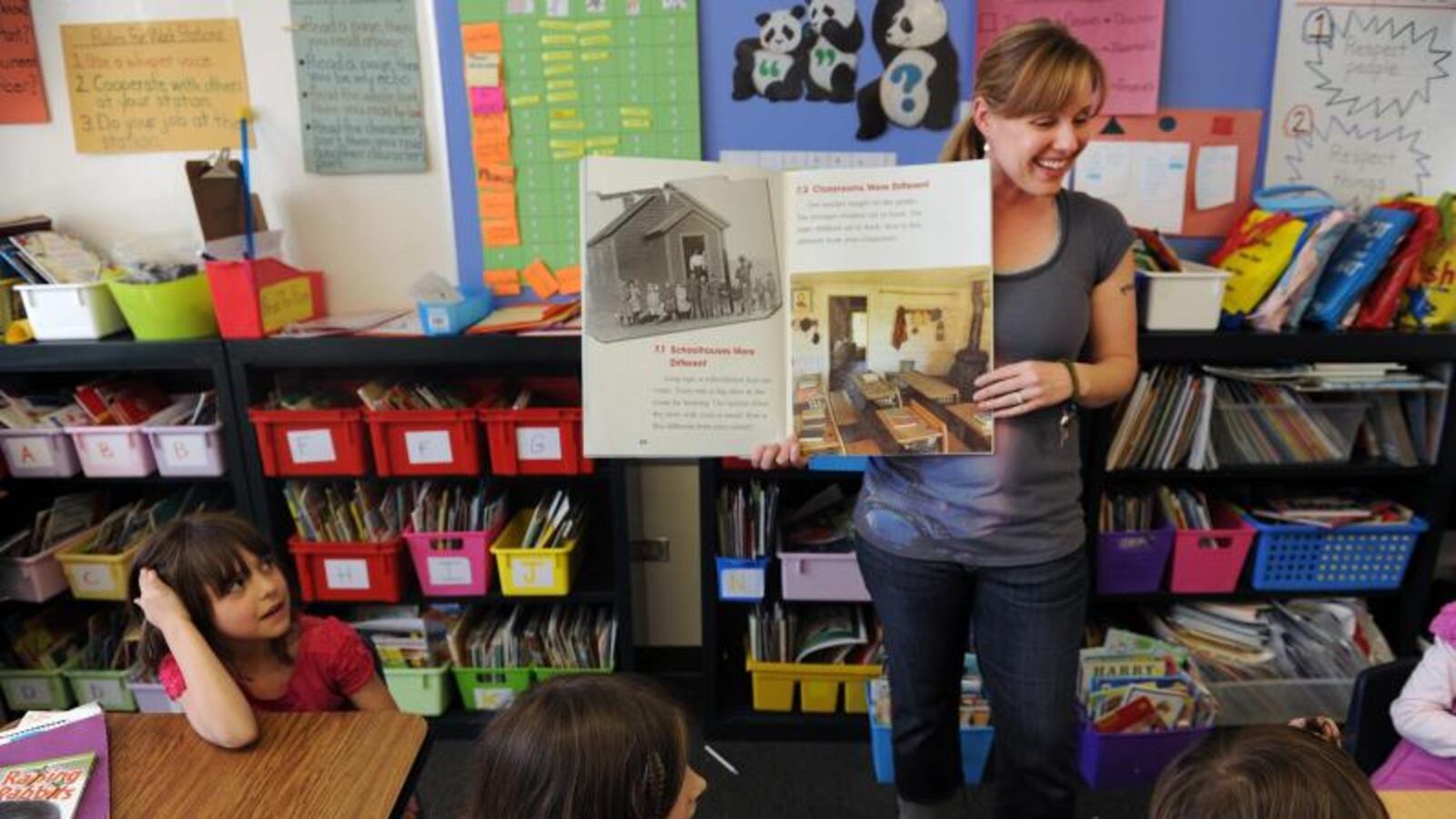Fresh off a round of packed public negotiations that resulted in a new five-year teacher contract, the Denver teachers union and Denver Public Schools are back at the bargaining table, this time discussing an overhaul of the district’s pioneering pay-for-performance system.
Under the system, called ProComp, teachers get salary increases for completing training or earning advanced degrees. They also get bonuses, including for teaching in schools that serve high percentages of low-income students or schools where students do well on state tests.
Teachers have said the system is confusing and complicated. Because the amount of money they can earn through bonuses can change year to year, teachers say it’s hard for them to predict the size of their paychecks, which makes financial planning difficult.
After spending the past year and a half jointly researching public- and private-sector compensation systems in an attempt to reach common ground on the goals of ProComp, representatives from the district and the union said they agree on some objectives, such as wanting to simplify the system. But they disagree on others.
For instance, district negotiators said they believe ProComp should work to attract and retain great teachers, especially for hard-to-fill positions and in high-needs schools. Union leaders said it should do so for all schools, not just those that are low-performing.
Pay-for-performance systems are relatively rare in public school districts. As for their effectiveness, the research is mixed. Some studies have found that giving teachers bonuses for raising student test scores doesn’t raise scores. Others suggest offering incentives to teachers increases retention. Denver officials acknowledge that while the district has improved on both fronts since ProComp was adopted, it’s difficult to prove ProComp was the reason.
The district first piloted a pay-for-performance system in 1999. Voters in 2005 approved a tax increase to fund it. Three years later, in 2008, the district and the union re-negotiated ProComp and boosted the amount of money teachers could earn under the system.
While the two sides have tweaked the system since then, they have not made major changes. One change the union would like to see is a return to a traditional salary schedule under which teachers get raises based on their education and years of service, with ProComp bonuses awarded on top of that, said Corey Kern, deputy executive director of the Denver Classroom Teachers Association. Currently, the salary schedule is used only to set teachers’ initial base salary.
“We want it to be a simple system that works as icing on the cake, rather than the whole cake,” Kern said of the next iteration of the system, which has been nicknamed “ProComp 3.0.”
Michelle Berge, the district’s deputy general counsel and lead negotiator, said the district would need to see a proposal before it could evaluate that idea. But she noted that “our teachers in the ProComp system are earning more than they would on the traditional salary schedule.”
The district must also be mindful, she said, of the language in the ballot measure voters approved in 2005 to fund ProComp. It lists how the revenue will be used, including to compensate teachers for working in hard-to-fill positions and hard-to-staff schools, and for earning positive teaching evaluations and meeting student learning goals.
Voters initially approved a $25 million tax increase, which was to be adjusted for inflation in future years. This year, the taxes will generate about $35 million, Berge said.
Unlike in other types of contract negotiations, the amount of money isn’t up for discussion. Instead, the two sides will hash out how to spend it.
Colorado law requires school districts and unions to bargain in public. The Denver union took advantage of that openness during this year’s master contract negotiations, which stretched from January to August. Dozens of teachers showed up to bargaining sessions and passionately offered feedback on how certain proposals would affect them and their students. Others followed along as the union live-tweeted and livestreamed the sessions.
In the end, the two sides agreed on a contract that increased teachers’ base salary more than the district originally proposed, but fell short of the union’s most ambitious demands. The base salary this year for a first-year teacher with a bachelor’s degree, before incentives, is $41,689.
The ProComp negotiations will be different in that the two sides have secured a mediator and are trying a method known as interest-based bargaining. Instead of trading proposals back and forth, they started the more collaborative process at their first meeting before Thanksgiving by making a long list of potential issues to discuss. Next, negotiators said they’ll narrow that list to a handful of key issues and then aim to come to consensus on each one.
For instance, Berge said they might analyze whether a single incentive — say, the $2,500 bonus teachers get if their school earns one of the district’s highest ratings — “is still aligned with what we want to do,” or whether there’s a different way to spend that money.
The method has the potential to be less contentious, Kern said. “Traditional bargaining is very much us versus them,” he said. “This is a lot more brainstorming together.”
The current ProComp agreement expires Dec. 31. The two sides have three more negotiation sessions scheduled between now and then, with the next one set for Thursday.

